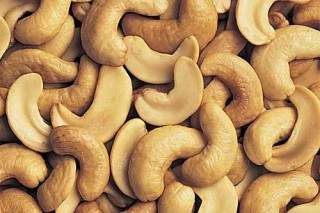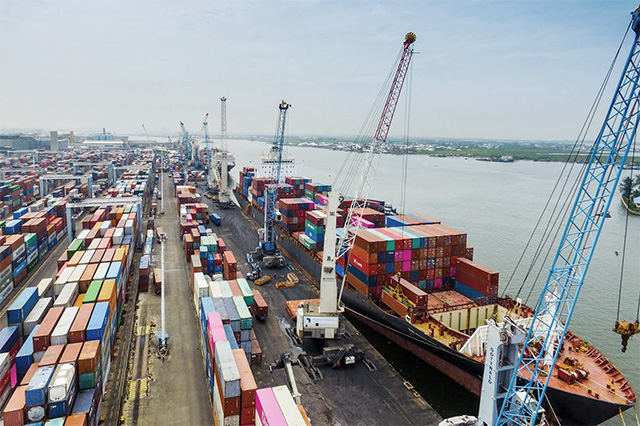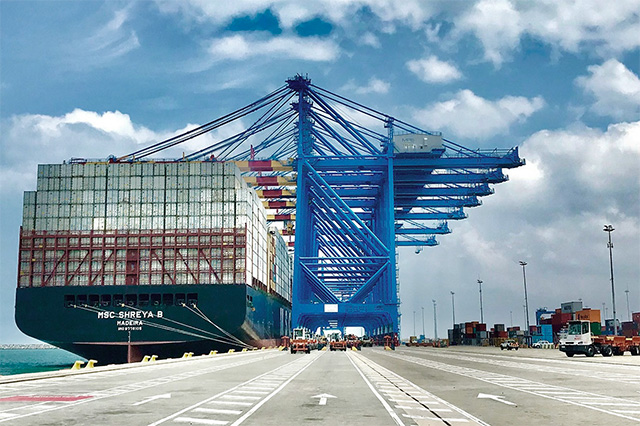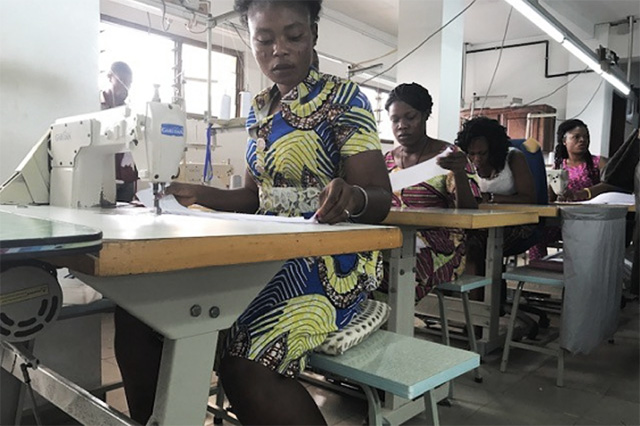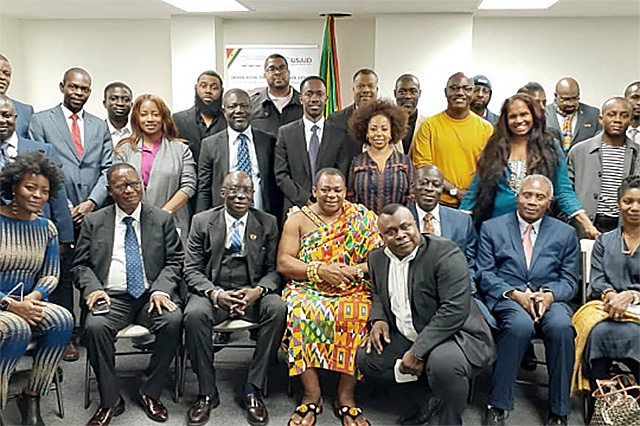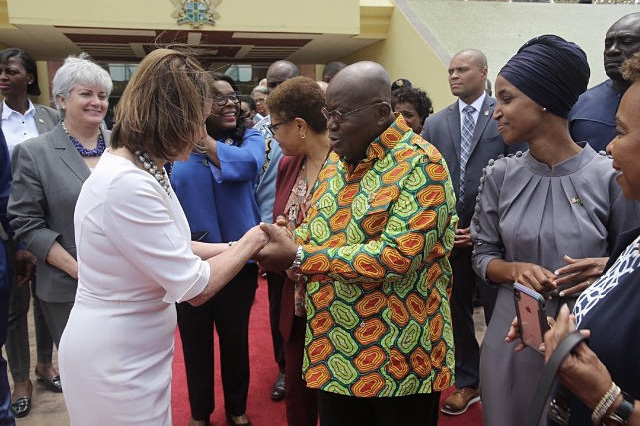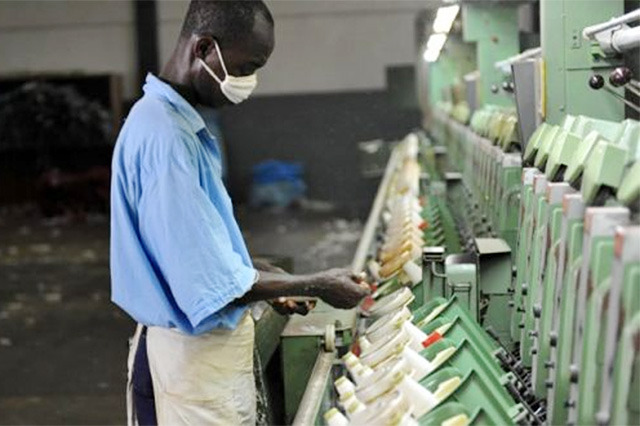Ghana: Realising the potential of cashew production
Cashew has become an important agricultural commodity in its purest industrial sense and though this fact is highly esteemed in many countries the world over, Ghana is yet to tap into the rich potentials of this cash crop which has great benefits for the individual and the country as a whole.
Agriculture accounts for over 60% of Ghana's economic success which is more than half of the country's Gross Domestic Product (GDP) and also, agricultural products form a large chunk of commodities for export.
The country concentrates mainly on cocoa, pineapple, oil palm, kola nut, grains and timber but cashew is not given much attention due to lack of knowledge of its importance in global economy.
Cashew (Anacardium occidentale) is a tree in the flowering plant family Anacardiaceae. The plant is native to north-eastern Brazil and its English name was derived from the Portuguese name for the fruit of the cashew tree which they call "caju". Cashew is produced in about 32 countries of the world with special concentration in America, Asia and Africa since these countries have dominantly warm and humid climates suitable for its growth.
The world production figures of cashew crop, published by the UN's Food and Agriculture Organization (FAO), was around 3.1 million tons per annum. The major raw cashew seeds producing countries with their production figures hitting over 1 million metric tons per annum are 19 in number with India, Brazil, Vietnam, Tanzania, Guinea Bissau, Cote d'Ivoire, Benin, Nigeria, Mozambique and Indonesia accounting for more than 90% of all cashew kernel exports. The world's total area under the cultivation of cashew is around 33,900 km. India ranks first in area utilized for cashew production, though its yields are relatively low at an average yield of 817 pounds per acre (916 kg/hectare) of land.
However, despite the high value of cashew in many parts of the world , the African continent, which is widely known for having the best climate suitable for the cultivation of cashew, is still reported to be at the infancy stage of the production, processing and marketing of cashew as compared to other countries.
Ghana is considered to be one of the countries with the lowest yields of cashew for the international market. On a global scale, it was estimated that cashew production reached around 3.1 million tons a year and in 2005, for instance, Ghana exported 41,000 metric tonnes of cashew, out of which only 10,000 was harvested in the country, earning 30 million dollars. Furthermore, the production of raw cashew is reported to have increased from 7,212 metric tonnes in 2003 to 16, 422 in 2006 in Ghana but only 1% of this product was utilised locally.
Agricultural experts have warned that there are internal factors that militate against the cultivation and commercial growth of cashew and these must be dealt with if the country is to gain substantial revenues from cashew. Already, cashew farmers in the country are faced with severe problems such as maintenance of their farms, pest and disease control, transportation and knowledge about the local use of cashew.
A recent research report, "West African Regional Cashew Survey", revealed the problems still faced by cashew farmers in Ghana and other African countries. The research reported that apart from the cashew plantation being threatened by insect pests like aphids, leaf rollers among others, diseases such as powdery mildew disease (PMD) damaged the crops more than any other factor. Moreover, there are also the problems of flowers drying out with no production due to unfavourable weather conditions as well as the damaging effects of bush fires to the plantation.
As cashew nuts grow on trees, investments are relatively high, and years pass before the area cultivated produces an outcome. Further, the plants need constant care but poor farmers in rural areas where cashew cultivation is key lack the requisite amenities to cater for the plants on regular basis. Thus, despite the ample availability of land for cashew cultivation, local farmers are not well supported with sophisticated equipments to enhance their work.
There is also the constraints involved in transporting harvested cashew from the farm to locations where processing and other commercial activities occur. Apart from the roads being bad, vehicles and even the financial capacity for transportation are challenges for the poor farmers who live in remote rural settlements. Unfortunately, such problems have not been adequately addressed by the government.
However, there are laudable efforts being made by international groups and programmes like the African Cashew Alliance (ACA) and the African Growth and Opportunity Act (AGOA) to improve on the export of cashew and ensure the general welfare of the farmers.
A representative from the Cashew Producers and Exporters Association of Ghana (CAPEAG) told this reporter of the group's efforts in developing the production of cashew in Ghana
"We are working hand in hand with the Ministry of Trade, Industry, Private Sector Development and Presidential Special Initiative to speed up the Cashew Development Project in cashew cultivation districts and other areas where the production and export of the product are very active" he said.
Ghanaians had the opportunity to realise the importance of cashew on the international market when the President of the USA, George W. Bush inspected a trade exhibition at the Trade Fair Centre in Accra as part of his visit to Ghana early this year. The fair, organised by AGOA, had a variety of agricultural products on exhibition by different organizations of which cashew-producing formed part.
At the fair, President Bush held an open discussion with officials from Olam International, a major agricultural product distributor with offices in Asia, South America and several African countries including Ghana, on how to collaborate and help develop cashew production in Ghana.


